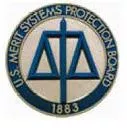The Definitive Guide To The Merit Systems Protection Board (MSPB)

The Merit Systems Protection Board (MSPB) serves as an independent and semi-judicial agency which is the guardian of Federal merit systems. It serves as a part of the Executive branch of the United States government. The Board came into being via a 1978 law which became effective in 1979. This was the Civil Service Reform Act of 1978 (CSRA), Public Law No. 95-454.
Merit Systems Protection Board Appeals
If you are a civil servant and you lose your job, you then appeal to the Merit Systems Protection Board. The Board also handles any appeals of suspensions which last more than 14 days, pay or grade reductions, and any furloughs which last 30 days or less. The MSPB also handles a lot of retirement matters.
Also, under the Whistleblower Protection Act of 1989, a Federal employee who claims a personnel action was taken (or threatened) because of whistleblowing can seek corrective action directly from the Board.
Discrimination

In addition, if a case involves discrimination, then the Merit Systems Protection Board will hear it. However, an employee who is dissatisfied with the Board’s final decision can ask the Equal Employment Opportunity Commission to review the Board’s decision.
And then if the EEOC and the Merit Systems Protection Board cannot come to an agreement, the case then goes to the Special Panel for final resolution. The Special Panel is: a Chairman (the President appoints them), one member of the Board (the MSPB Chairman appoints them), and one EEOC commissioner (the EEOC Chairman appoints them).
Merit Systems Studies
The MSPB also conducts what are called merit systems studies. In the spring of 2017, the MSPB reported concerning its study about effective hiring practices in the civil service system. The Board looked at data from all facets of the hiring process. These included internal processes, advertising online, and assessments of candidates.
Another recent study was about how Federal employees felt if there was discrimination based on sexual orientation.
Organizational Principles

The MSPB follows a list of Merit System Principles (5 USC § 2301). These include encouraging diversity in hiring practices; nondiscrimination on the basis of religion, gender, race, marital status, national origin, political affiliation or handicapping condition; equal pay for work of an equal value; and protection from reprisals when an employee reports misdeeds such as waste of funds, mismanagement, or dangers to public health.
The Organization
The Board works out of Washington, DC. It also has field offices in Denver and New York, and regional offices in cities like Atlanta and San Francisco. Departments such as Financial and Administrative Management report to the Executive Director who then reports directly to the Chairman.
Filing a Merit Systems Protection Board Appeal
The Board maintains a website to file appeals online. The online form requires a free membership and also provides a case’s status and associated documents to the appellant. Most appeals come under 5 C.F.R. §§ 1201.24. The document’s requirements including basic identifying information and the reasons why an appellant feels the initial agency action is wrong. Furthermore, the appellant can raise a claim or defense not included in the appeal. This can happen any time before the end of any conferences held to define the case’s issues. After that, an appellant may not raise a new claim or defense, except for a showing of good cause. Also, if a party shows a claim or defense would result in undue prejudice, then they can get a claim or defense excluded.
Merit Systems Protection Board Timing and Other Details
A party must file most appeals within thirty days of the initial agency action, or within thirty days of receiving the agency’s decision, whichever comes later. If the parties agree to try alternative dispute resolution (e. g. mediation), that triggers an extension. That extends the amount of time to file by thirty days. This brings the time frame to sixty days.

Appellants must file an appeal with the MSPB’s regional or field office for their duty station. Or, if the appeal relates to a final decision of the Office of Personnel Management about retirement benefits, or an adverse suitability determination, then the appellant must file with the regional or field office with jurisdiction over the area where they live.
In addition to any information as required by the Merit Systems Protection Board’s own regulations, appellants must also file their notice of proposed action. They must also file a copy of the agency decision under appeal. And if it is available, they have to file a copy of the SF-50 or a similar notice of personnel action.
Appellants can represent themselves, or they can name a representative.
For more details, check the MSPB website.
After Filing an Appeal
First, the Administrative Judge for the case will issue an Acknowledgment Order to the appellant and the agency. This Acknowledgment Order sends a copy of the appeal to the agency. It also directs the agency to submit a statement as to its reason for taking the challenged action or decision. The Acknowledgment Order also contains all of the documents in the agency record of the action. This Acknowledgment Order will order appellant to submit evidence and make arguments if there are any questions. Questions include if the appeal was timely or if there are questions about the Board’s jurisdiction.
The Administrative Judge will issues notices and orders and will often hold one or more status or prehearing conferences. These conferences clarify and narrow down the issues on appeal. After a hearing or when the written record closes, the Administrative Judge issues an initial decision. This decision must identify all material issues of fact and law. In addition, it must summarize evidence, resolve credibility issues, and include the Administrative Judge’s conclusions of law and legal reasoning. It also must include any cited authorities for the judge’s reasoning.
